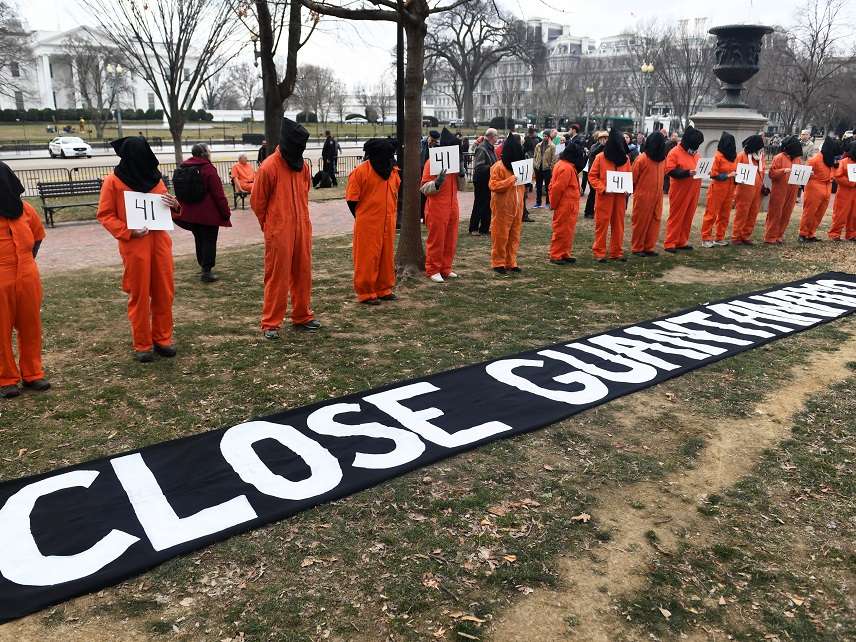Trump to Rescind Obama E.O. Shutting Down Gitmo That Never Went Anywhere
The prison camp on the island of Cuba will remain open indefinitely.

President Trump may soon issue an executive order that would stress his administration's commitment to keeping Guantanamo Bay open by formally rescinding the executive order former President Barack Obama signed on his first day in office in 2009.
The order may be released ahead of Trump's State of the Union, scheduled for Tuesday, and could get a mention in the address.
The 2009 order was supposed to lead to the closure of the prison, colloquially known as "Gitmo," but the Obama administration failed to get around a Congress that passed defense spending authorizations specifically prohibiting such a move.
While the Obama administration declined to press the matter, it did transfer more than 100 detainees away. The Trump administration has refused to sign off on the transfer of any of the remaining 41 detainees.
The prison camp at Guantanamo Bay, established in the wake of 9/11 as a place to indefinitely hold without trial enemy combatants the Bush administration insisted were extremely dangerous, became a symbol of the unconstitutional measures the U.S. was willing to take as part of the war on terror. Obama provided a bipartisan imprimatur for the camp (as he did for much of the rest of the war apparatus) by continuing it largely unchanged.
In a way, the camp is a quaint throwback to a simpler era: Today, the U.S. is more likely to drone bomb a target that once upon a time might have have been apprehended and ended up in Gitmo. So-called "signature strikes" select targets based on the profiling of terrorism suspects rather than identifying them by name. The Obama administration insisted that practice met due process requirements, but civil liberties advocates have rejected that assertion.
The Defense Department, meanwhile, is fighting in court for its right to transfer an unidentified U.S. citizen into the custody of another country outside of U.S. jurisdiction. It had previously vigorously resisted the idea that the detainee, an accused ISIS fighter, had the right to legal representation.
The Trump administration has ramped up the global war on terror it inherited from Obama, removing even those guard rails its predecessors put up or pretended to. Through it all, Congress has been remarkably consistent in its refusal to take any responsibility for its own constitutional role in the war-making process.


Show Comments (3)